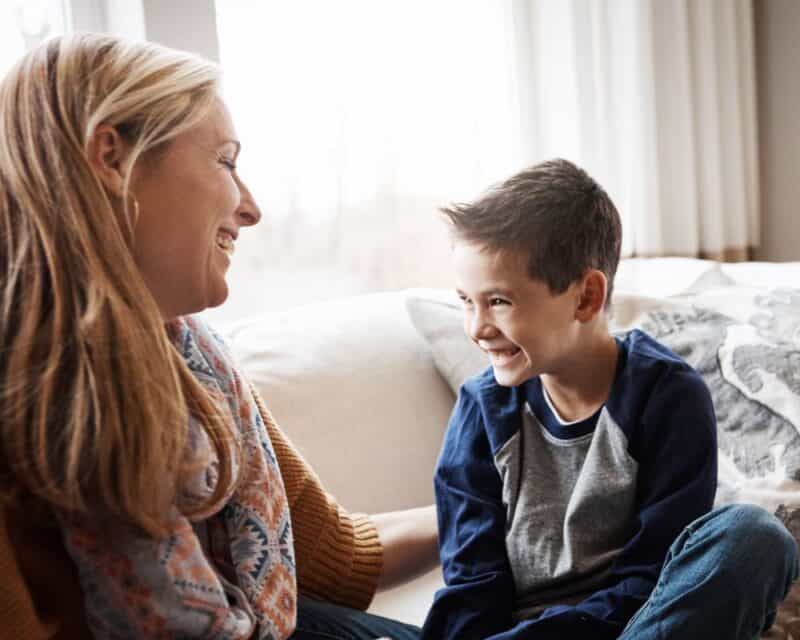As we embrace Children’s Mental Health Week, the concept of a ‘mental health friendly home’ becomes more pertinent than ever. Our homes are not just physical structures but nurturing spaces pivotal to our children’s mental wellbeing. This article aims to guide parents in creating a nurturing home environment, one that supports and enhances the mental wellbeing of their children.
Understanding the Importance of a Home Environment

A ‘mental health friendly home’ plays a crucial role in the emotional and psychological development of children. It’s a space where they learn to manage their feelings, develop self-esteem, and build resilience. The right home environment can be a sanctuary that fosters security and emotional growth.
Creating a Nurturing Home Space

Promote Open Communication
Central to ‘mental health nurturing’ is fostering an environment where open and honest dialogue is the norm. Encourage your children to share their thoughts and feelings without fear of judgment. Active listening and empathetic responses create a safe haven where kids feel genuinely heard and understood, bolstering their emotional wellbeing.
Design for Comfort and Safety
A key element in a mental health friendly home is its physical environment. Ensure your home is a comforting sanctuary with ample natural light, cosy spaces, and secure surroundings. This thoughtful setup not only elevates the ambiance but also significantly supports your child’s mental wellbeing, making them feel safe and at peace.
Establish Routines and Structure
In a mental health friendly environment, regular and predictable routines are vital. They provide a framework of stability and security, helping children feel grounded and secure. Simple, consistent daily rituals like regular mealtimes, bedtime routines, and scheduled playtimes can significantly enhance a child’s sense of order and wellbeing.
Encourage Creative Expression
Nurturing your child’s mental wellbeing involves encouraging their creativity. Designate areas in your home for artistic activities, supply materials for drawing, painting, or crafting, and celebrate their creations. This creative freedom is essential for emotional expression and cognitive development.
Foster a Positive Atmosphere
Cultivating a positive, supportive home atmosphere is crucial for your child’s mental wellbeing. Demonstrate kindness, understanding, and patience in your interactions. Celebrate small successes and maintain an optimistic outlook, as this positivity significantly impacts your child’s emotional health.
Limit Exposure to Stressful Media

In a mental health friendly home, carefully monitor and manage your child’s media consumption. Choose age-appropriate content and limit exposure to stressful or disturbing material. Encourage engaging in more constructive activities like reading or outdoor play, which are beneficial for their mental wellbeing.
Incorporate Nature and Greenery
Enhance your home’s environment by bringing in elements of nature. Add indoor plants, create a small herb garden, or set up spaces with views of the outdoors. Natural elements reduce stress and improve mood, positively affecting your child’s mental wellbeing.
Create a Sense of Belonging
Personalise your child’s space to reflect their personality and interests. This not only makes them feel valued and secure but also reinforces their sense of identity and belonging within the home, which is crucial for mental wellbeing.
Prioritise Family Time
Regularly engage in family activities that foster connection and joy. Whether it’s shared meals, game nights, or outdoor adventures, these moments are vital for strengthening bonds and supporting your child’s mental wellbeing.
Seek Professional Advice if Needed
If you have concerns about your child’s mental health, promptly seeking advice from a mental health professional is a proactive step. It ensures your home continues to be a nurturing and supportive environment for your child’s wellbeing.
Conclusion

The journey of creating a mental health friendly home is ongoing and ever-evolving. By focusing on these aspects, we can ensure our homes are not just places of physical safety but nurturing havens that support and promote our children’s mental wellbeing. This Children’s Mental Health Week, let’s commit to making our homes bastions of emotional and psychological wellness for our children.
